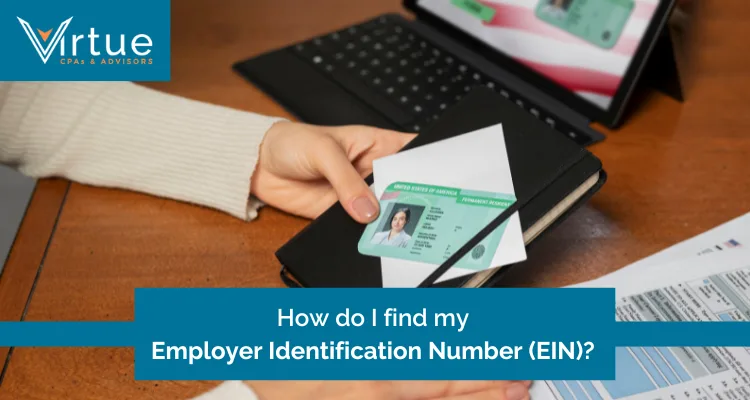Getting a business credit card with just your EIN is possible through corporate cards that evaluate your business's cash reserves and financial health rather than personal credit history. Modern fintech providers like Ramp require as little as $25,000 in business bank accounts, while traditional banks typically demand $2-4 million in annual revenue.
This comprehensive guide reveals everything you need to know about securing business credit cards using only your Employer Identification Number, from qualification requirements to application strategies that maximize your approval chances.
What Exactly Is a Business Credit Card with EIN Only?
An EIN-only business credit card allows your company to obtain credit using just your Employer Identification Number, without requiring your Social Security Number or personal guarantee. These cards place all financial responsibility on your business entity, not on you personally as the owner.
The key distinction lies in corporate liability structure. Unlike traditional small business credit cards that require personal guarantees, EIN-only cards rely entirely on your business's financial strength and legal structure for approval decisions.
Corporate credit cards are the primary type of EIN-only business credit cards available today. These cards evaluate your business based on cash reserves, revenue, and banking relationships rather than personal credit history.
Most traditional financial institutions like American Express, Chase, and Capital One offer corporate cards with high revenue requirements. However, modern fintech providers like Ramp, BILL Divvy, and Stripe have emerged as more accessible alternatives for mid-sized companies with strong cash positions.
Which Business Structures for EIN-Only Credit Cards?
Limited Liability Companies (LLCs), corporations, and partnerships typically qualify for EIN-only business credit cards, while sole proprietorships face significant barriers. The legal separation between business and owner is crucial for approval.
Eligible Business Entity Types
- Corporations (C-Corp and S-Corp) represent the gold standard for EIN-only card applications. Traditional corporate structures provide clear legal separation and are preferred by most credit card issuers.
- Limited Liability Companies (LLCs) with proper business banking relationships generally qualify for corporate card consideration. Both single-member and multi-member LLCs can qualify if they meet financial requirements.
- Partnerships and Limited Partnerships with formal partnership agreements can qualify, especially when demonstrating strong financial performance and proper business documentation.
Why Sole Proprietorships Struggle
Sole proprietorships rarely qualify for true EIN-only cards, even with an EIN number. Most issuers view single-owner businesses as higher risk and require personal guarantees regardless of business structure.
The lack of legal separation between owner and business makes sole proprietorships ineligible for corporate liability structures that EIN-only cards require.
Professional service businesses like law firms often benefit from converting to LLC or corporate structures before pursuing EIN-only credit cards. This conversion also provides additional tax benefits and liability protection beyond credit applications.
What Are the Current Financial Requirements for EIN-Only Cards?
Financial requirements for EIN-only business credit cards vary dramatically between traditional banks and modern fintech providers. Understanding these differences is crucial for determining your qualification path.
Traditional Bank Corporate Cards
Major banks like Chase, American Express, and Capital One typically require:
- Annual revenue of $2-4 million or higher
- Established business operations for 2+ years
- Extensive financial documentation and business history
- Often designed for large corporations with substantial spending
Fintech Corporate Card Requirements (2025)
Modern providers focus on cash reserves rather than revenue history:
- BILL Divvy Corporate Card: $20,000 minimum business bank account balance
- Ramp Business Corporate Card: $25,000 minimum business bank account balance (reduced from $75,000 in 2024)
- Brex Corporate Card: $50,000+ for funded startups, higher for established companies
- Stripe Corporate Card: Invitation-only for existing Stripe payment processors
Industry-Specific Considerations
Professional service businesses like law firms often receive favorable consideration due to predictable revenue streams and lower default rates compared to retail or restaurant businesses.
High-risk industries may face additional scrutiny, but established professional firms with strong client bases typically navigate requirements successfully due to their stable business models.
Businesses with recurring revenue and long-term client relationships present lower risk profiles to corporate card issuers, potentially qualifying for better terms and higher credit limits.
Top 6 EIN-Only Business Credit Cards for 2025
1. Ramp Business Corporate Card
Ramp offers credit limits up to 30 times higher than traditional business cards by analyzing cash reserves and business metrics rather than personal credit scores. Their corporate card requires no personal guarantee and provides advanced expense management tools.
Key Features for Professional Firms:
- Unlimited 1.5% cashback on all purchases
- Automated receipt matching and expense categorization
- Integration with accounting software like QuickBooks
- Real-time spending controls and budget enforcement
- No annual fees or foreign transaction fees
Requirements: Corporation, LLC, or LP with minimum $25,000 in US business bank account and primary operations in the United States.
Best For: Mid-sized professional firms seeking comprehensive expense management with strong cash flow and established banking relationships.
2. BILL Divvy Corporate Card
BILL Divvy specializes in professional service businesses with points-based rewards and built-in budgeting tools. The card integrates seamlessly with accounting software commonly used by law firms.
Professional Services Benefits:
- Points-based rewards with bonus categories
- Category-specific spending limits for different practice areas
- Employee card management with individual controls
- Integration with QuickBooks and legal accounting systems
- No annual fees with comprehensive expense tracking
Requirements: Registered business with EIN and US business bank account. Minimum $20,000 bank balance. Soft credit check may be performed.
Best For: Businesses already using BILL's ecosystem who want integrated expense management and lower cash requirements.
3. Brex Corporate Card
Brex targets funded startups and growing companies with dynamic credit limits based on cash balances and business performance.
Key Advantages:
- Dynamic credit limits that adjust with business growth
- Points-based rewards system with up to 8x points per dollar
- Brex Cash management tools for enhanced cash flow
- No personal guarantee or credit check required
Requirements: $50,000+ cash balance for funded startups, higher for established companies. Invitation-based approval process.
Best For: High-growth companies with substantial cash reserves or venture funding seeking scalable credit solutions.
4. Stripe Corporate Card
Stripe's invitation-only corporate card works best for businesses already using their platform but offers excellent international spending capabilities for firms with global clients.
Key Features:
- No foreign transaction fees for international client work
- Straightforward 1.5% cashback on all purchases
- Platform integration for businesses processing client payments
- Real-time expense reporting and automated controls
Requirements: Current Stripe users with established payment processing history. Limited availability through invitation-only program.
Best For: E-commerce businesses and companies already processing payments through Stripe's platform with international spending needs.
5. Coast Fleet Card (Specialized Option)
Fleet cards serve professional firms with multiple vehicles or extensive travel requirements. Coast offers fuel discounts and fleet management tools for firms with significant transportation expenses.
Fleet Management Features:
- 4¢-10¢ per gallon fuel discounts at partner stations
- Real-time purchase controls and spending insights
- Wide acceptance at fuel and maintenance locations
- Monthly reporting for expense documentation
Requirements: Fleet-based business with multiple vehicles requiring fuel expense management. EIN-based application available.
Best For: Law firms with multiple office locations, extensive client travel, or significant vehicle fleets requiring fuel and maintenance expense management.
6. Nav Prime Card
Nav Prime focuses specifically on business credit building without requiring credit checks or personal guarantees, though it requires a monthly subscription.
Credit Building Benefits:
- Reports to major business credit bureaus monthly
- Two tradelines reported for accelerated credit development
- No impact on personal credit scores during application
- Business credit monitoring and improvement tools
Requirements: Nav Prime membership subscription at $49.99/month. Not available in California, Nevada, or the Dakotas.
Best For: New businesses focused on building business credit history without personal credit impact, despite higher monthly costs.
Wondering which card best fits your business model? Schedule a consultation with Virtue CPAs to analyze your business finances & credit strategy.
How Do You Apply for an EIN-Only Business Credit Card?
The application process for EIN-only business credit cards requires comprehensive business documentation and typically takes 1-3 weeks for approval. Unlike personal credit cards with instant decisions, corporate cards undergo thorough financial review.
Step 1: Prepare Required Documentation
Business formation documents including articles of incorporation, LLC operating agreements, or partnership agreements demonstrate your legal business structure to card issuers.
Financial statements and tax returns from the previous 2-3 years provide evidence of revenue stability and business performance. Professional firms should prepare comprehensive profit and loss statements.
Business bank statements covering 3-6 months show cash flow patterns and account balances meeting minimum requirements. Consistent deposit patterns strengthen applications significantly.
Step 2: Verify Financial Thresholds
Review each card's minimum requirements carefully before applying. Corporate cards have specific financial standards that must be met for approval consideration.
Cash reserve verification requires business bank accounts showing adequate balances for 2-3 months consistently. Seasonal fluctuations should be documented and explained in applications.
Revenue documentation through tax returns or financial statements should demonstrate business stability, though fintech providers focus more on cash position than revenue history.
Step 3: Complete Application Process
Most EIN-only card applications begin online but may require phone consultations with corporate card specialists for final approval decisions.
Application timeline expectations range from immediate decisions for qualified applicants to 1-3 weeks for complex business structures. Fintech providers typically offer faster approval than traditional banks.
Professional guidance significantly improves approval odds by presenting your firm's financials optimally and avoiding common application mistakes that trigger automatic rejections.
Step 4: Provide Additional Documentation
Be prepared for follow-up requests including detailed business plans, client contracts, or additional financial statements depending on your business model and industry.
Some issuers may require bank account linking during the application process to verify cash balances and establish automatic payment arrangements for charge card balances.
Virtue CPAs assists professional firms in preparing comprehensive financial documentation that showcases business strength and meets corporate card requirements through our CFO Services.
What Are the Key Benefits of EIN-Only Credit Cards?
Complete financial separation represents the primary advantage of EIN-only business credit cards. Your personal assets remain protected from business debts, and business credit issues won't impact personal credit scores.
1. Financial Protection and Separation
Personal asset protection ensures business debts cannot touch personal homes, savings accounts, or other individual assets. This separation is crucial for law firm partners managing significant business expenses.
Credit score independence means business credit problems won't directly impact personal borrowing ability or mortgage applications. Professional firms can pursue aggressive growth strategies without personal financial risk.
Cleaner financial records simplify bookkeeping and create clear business expense categories for tax preparation and financial analysis.
2. Business Credit Building Opportunities
Faster business credit establishment becomes possible through exclusive reporting to commercial credit bureaus. Professional firms can build strong business credit profiles more quickly than personal credit development.
Higher credit limits are typically available through corporate cards compared to personal or traditional business credit cards. Law firms often need substantial credit for operational expenses and growth investments.
Better future financing terms result from strong business credit profiles. Established business credit leads to improved loan rates and terms for office expansion or equipment purchases.
3. Operational and Tax Benefits
Employee card management becomes simpler without personal liability concerns for business owners. Professional firms can issue cards to associates and support staff with appropriate spending controls.
Expense tracking capabilities integrate better with professional accounting software and business expense management systems commonly used by law firms.
Tax deduction clarity improves through clear business expense records that simplify tax preparation and audit defense processes.
Our Monthly Accounting Services help law firms maximize tax benefits through proper expense categorization and documentation from EIN-only credit card usage.
What Challenges Should You Expect with EIN-Only Cards?
Cash reserve requirements represent the primary barrier to EIN-only business credit cards. Even with lower minimums from fintech providers, many businesses struggle to maintain required account balances.
1. Financial Qualification Barriers
Minimum cash requirements of $20,000–$75,000 can strain smaller firm cash flows, especially during seasonal fluctuations or major expansion periods requiring capital deployment.
Business structure requirements eliminate sole proprietorships and require formal entity establishment, which may require legal and accounting assistance for proper setup.
Ongoing balance monitoring by some issuers means your credit limit may fluctuate based on account balances, requiring careful cash flow management.
2. Limited Options and Features
Fewer reward programs are available compared to traditional business credit cards. EIN-only cards focus more on expense management than competitive reward structures.
Less competitive promotional offers mean fewer sign-up bonuses or special financing terms compared to personal or traditional business credit cards.
Industry restrictions may exclude certain business types or professional specializations from specific card programs.
3. Charge Card Limitations
Monthly payment requirements mean you cannot carry balances from month to month. All spending must be paid in full by the due date each billing cycle.
Automatic payment setup requires linking business bank accounts for automatic debit, which some business owners prefer to control manually.
No financing capability eliminates the option to finance large purchases over time, unlike traditional credit cards with payment flexibility.
What Alternatives Exist for Firms That Don't Qualify?
Secured business credit cards offer the most accessible alternative for firms that don't meet EIN-only card requirements. These cards require cash deposits but provide business credit building opportunities with lower qualification thresholds.
1. Secured Business Credit Card Options
Bank of America Business Advantage Unlimited Cash Rewards Secured Card requires a minimum $1,000 deposit and offers 1.5% cashback with no annual fee. Professional firms can build business credit while earning rewards on expenses.
Wells Fargo Business Secured Card allows deposits between $500-$25,000 with flexible reward options including cashback or points programs. The $25 annual fee is reasonable for comprehensive business credit building.
First National Bank Business Edition Secured Card reports to Dun & Bradstreet specifically for business credit development with deposits ranging from $2,200-$110,000.
2. Traditional Business Cards with Reduced Personal Risk
Soft credit check business cards minimize personal credit impact by performing only soft inquiries that don't affect personal credit scores during application.
Limited personal reporting cards don't report positive or negative activity to personal credit bureaus, maintaining separation between business and personal credit profiles.
Reduced personal guarantee amounts limit personal liability to specific dollar amounts rather than unlimited exposure for business debts.
3. Alternative Business Financing
Business lines of credit based on business assets and revenue can provide similar benefits without credit card structures. Banks evaluate business financials independently of personal credit.
Invoice factoring services work well for professional firms with outstanding client invoices, providing immediate cash flow without personal credit requirements.
Equipment financing programs offer asset-based lending for office technology, furniture, or professional equipment with limited personal liability requirements.
Virtue CPAs' Business Consulting Services help professional firms evaluate all financing alternatives and choose optimal combinations for growth and cash flow management.
Expert Strategies for EIN-Only Card Success
Optimizing your business structure before applying significantly improves EIN-Only credit card approval odds. The legal framework supporting your business directly impacts how card issuers evaluate applications.
1. Business Structure Optimization
Choosing the right entity type between LLC and corporate structures affects both credit applications and tax efficiency. Professional firms should evaluate entity selection comprehensively before pursuing corporate credit.
Maintaining corporate formalities through regular meetings, separate accounting, and proper documentation strengthens your business structure for credit evaluation.
Operating agreement optimization ensures business agreements support corporate credit applications and financial independence from personal finances.
2. Financial Documentation Excellence
Monthly profit and loss statements demonstrate consistent financial management and stability to corporate card underwriters. Professional firms should maintain detailed financial records year-round.
Clean expense separation between business and personal spending creates professional appearance and simplifies credit evaluation processes.
Cash flow pattern documentation showing consistent revenue and expense patterns improves approval odds significantly compared to erratic financial histories.
3. Strategic Application Timing
Apply after strong financial periods when your business shows peak revenue and cash flow performance. Timing applications strategically can mean the difference between approval and rejection.
Coordinate with tax preparation cycles by applying soon after filing business tax returns when financial documentation is current and comprehensive.
Plan around business growth phases by applying before major expansion when current financials best represent business stability rather than during transitional periods.
4. Professional Guidance Benefits
Comprehensive credit strategy development extends beyond single card applications to long-term business financing planning and credit building activities.
Application presentation optimization helps present business financials in the strongest possible light while avoiding common mistakes that trigger automatic rejections.
Ongoing financial advisory support provides continuous guidance for business credit management and strategic financial decision-making.
Take the Next Step Toward Complete Financial Separation
EIN-only business credit cards represent a powerful tool for established professional firms seeking complete financial separation and enhanced business credit building. While cash requirements are substantial, the benefits of corporate liability protection and business credit development make these cards valuable for qualifying businesses.
Success with EIN-only credit cards requires strategic planning, comprehensive documentation, and often professional guidance to navigate complex application requirements. The investment in proper preparation typically pays significant dividends through improved approval odds and better credit terms.
The modern fintech landscape has made EIN-only cards more accessible than ever before. Companies like Ramp and BILL Divvy have reduced barriers significantly compared to traditional bank offerings, creating opportunities for mid-sized professional firms to access corporate-level credit solutions.
Ready to Optimize Your Business Credit Strategy?
Navigating EIN-only business credit cards requires careful planning and expert guidance. At Virtue CPAs, we help professional firms develop comprehensive financial strategies that support growth while protecting personal assets.
Our experienced team understands the unique challenges facing law firms and professional service businesses. We combine deep expertise in business structure optimization, financial documentation, and credit strategy to help you achieve complete financial separation while building strong business credit.
Don't wait to protect your personal assets while building strong business credit. Schedule your consultation today and see how Virtue CPAs can help you navigate the complex world of business credit with confidence and expertise.
Let our proven experience with professional firms guide you toward the financial separation and credit strategies that support your long-term success. Your business deserves the protection and growth opportunities that come with proper credit strategy implementation.
Frequently Asked Questions







